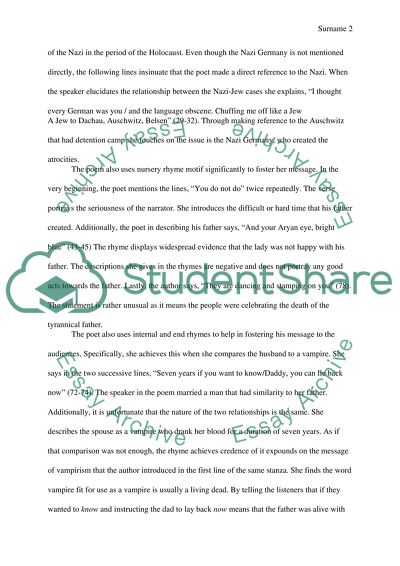Cite this document
(Love-Hate Conflict in Daddy by Sylvia Plath Book Report/Review - 1, n.d.)
Love-Hate Conflict in Daddy by Sylvia Plath Book Report/Review - 1. Retrieved from https://studentshare.org/literature/1693824-close-reading-a-poem-and-thesis-driven-essay
Love-Hate Conflict in Daddy by Sylvia Plath Book Report/Review - 1. Retrieved from https://studentshare.org/literature/1693824-close-reading-a-poem-and-thesis-driven-essay
(Love-Hate Conflict in Daddy by Sylvia Plath Book Report/Review - 1)
Love-Hate Conflict in Daddy by Sylvia Plath Book Report/Review - 1. https://studentshare.org/literature/1693824-close-reading-a-poem-and-thesis-driven-essay.
Love-Hate Conflict in Daddy by Sylvia Plath Book Report/Review - 1. https://studentshare.org/literature/1693824-close-reading-a-poem-and-thesis-driven-essay.
“Love-Hate Conflict in Daddy by Sylvia Plath Book Report/Review - 1”, n.d. https://studentshare.org/literature/1693824-close-reading-a-poem-and-thesis-driven-essay.


